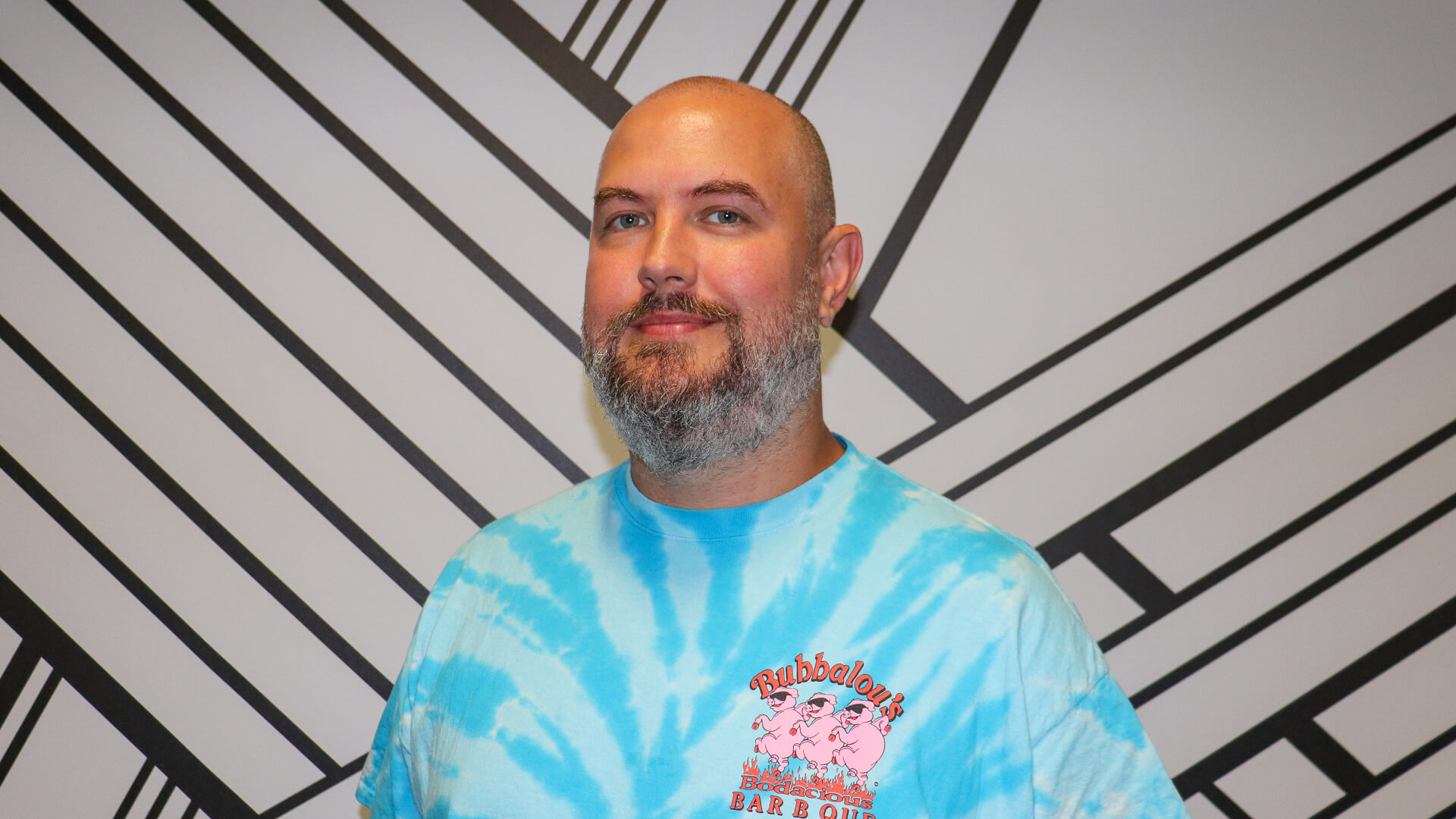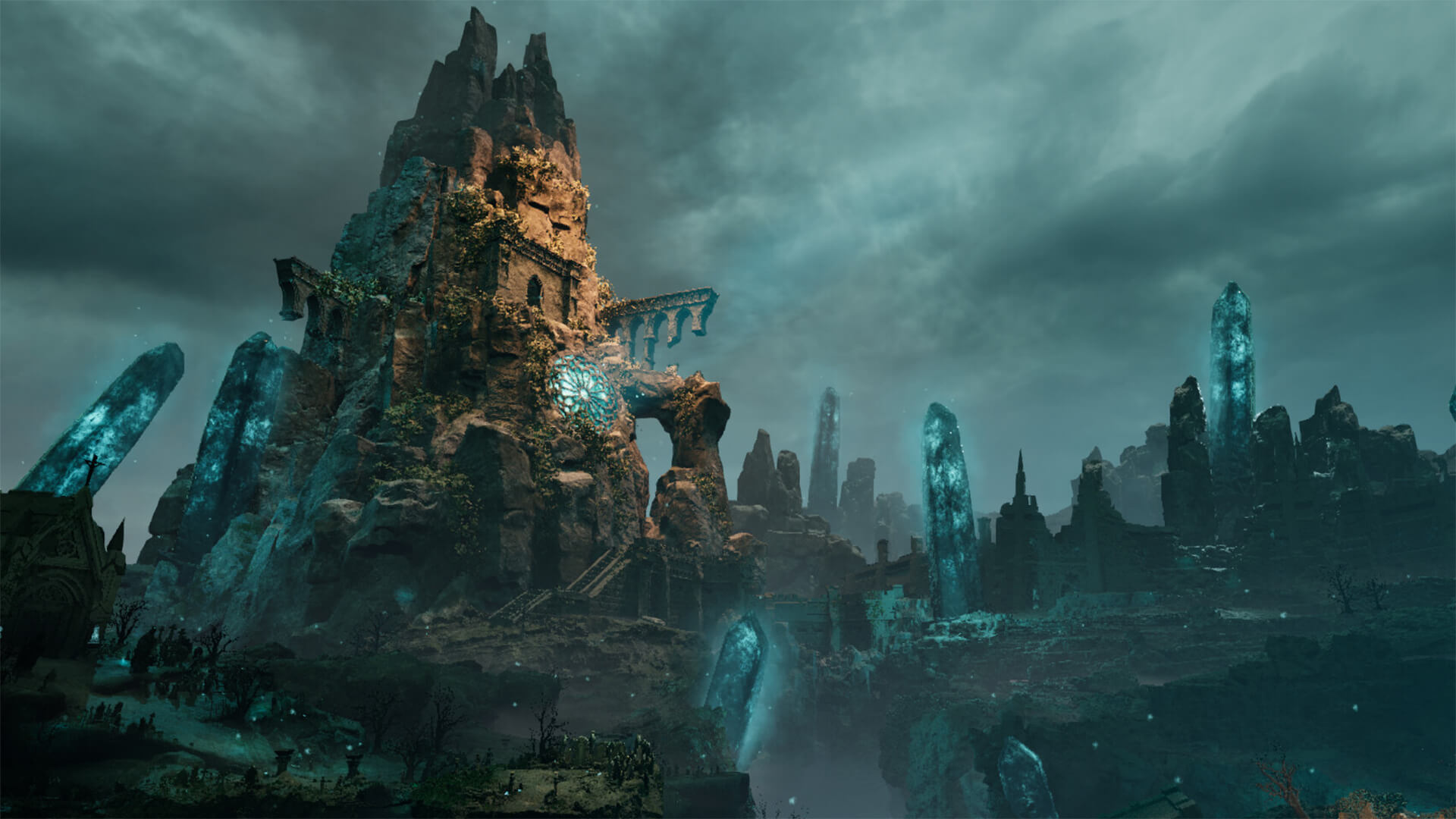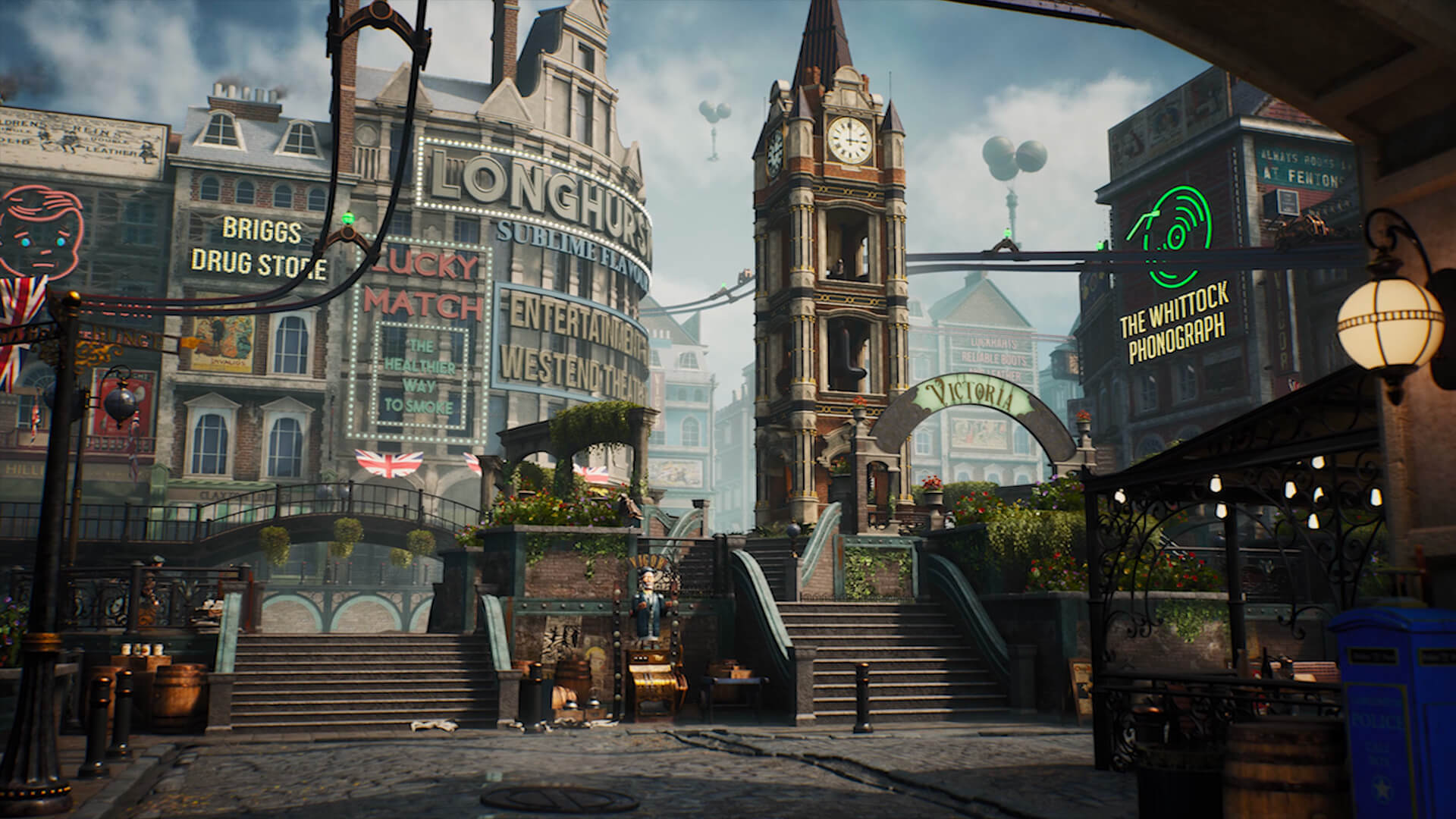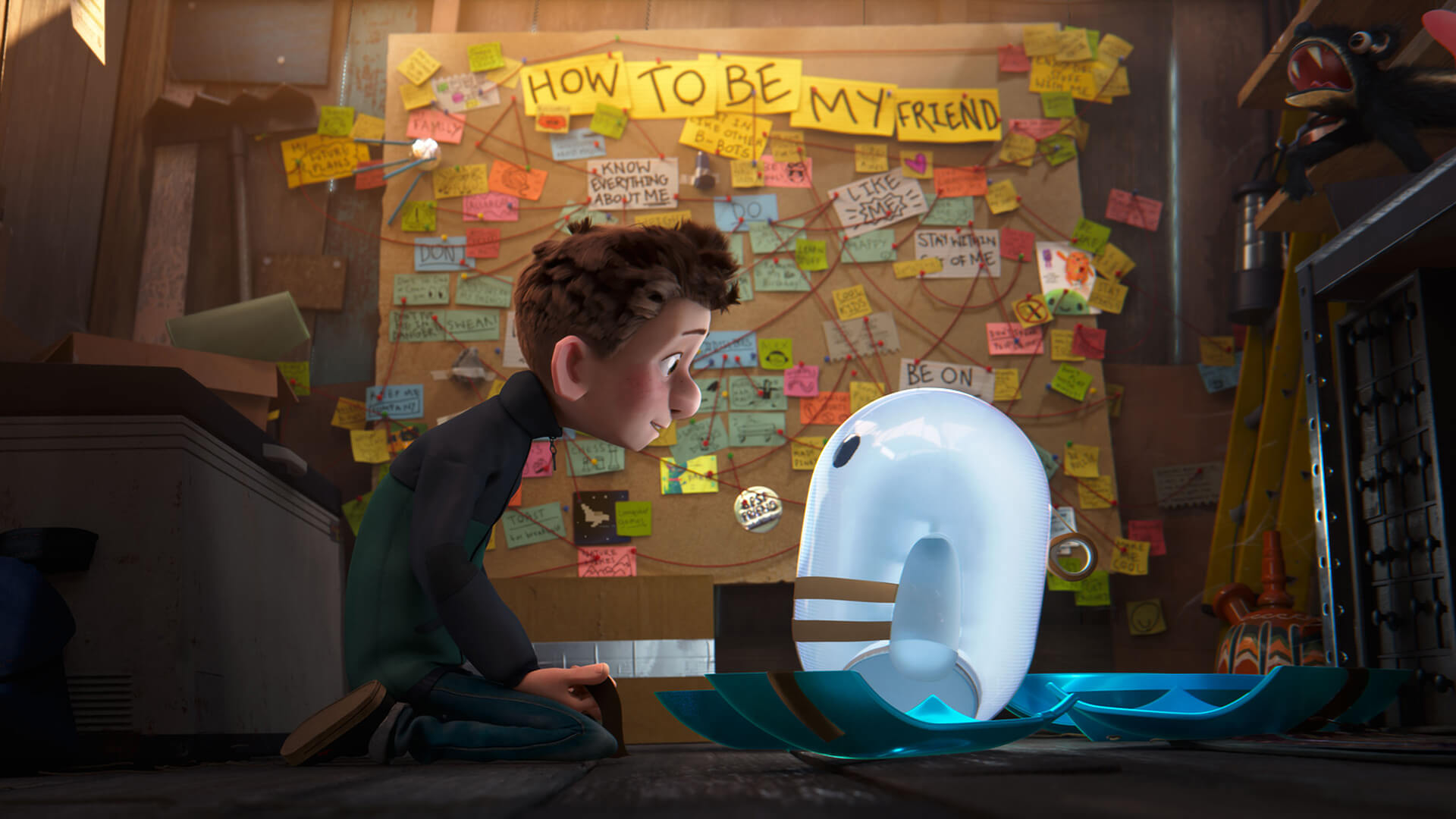MSc Game Design
MSc Game Design
Course Details
Location
Start date
15th September 2025
23rd February 2026
Duration
1 year
Contact time
2.5 days per week
Entry requirements
An undergraduate honours degree in a related subject or equivalent industry experience, plus a portfolio of creative work.
Fees
London campus (UK students): £12,450
London campus (international students): £19,995
Live online: £12,450
Degree awarded by
Scholarships and discounts
To be eligible for scholarships and discounts, apply by:
- 23rd June (September 2025 intake)
- 1st December (February 2026 intake)
Games Designers are among the most sought-after jobs in creative industries.
Course overview
This degree has been created with our industry partners to be a highly focused digital games course that encompasses not only theory but technical and artistic approaches. From core design practice through to game engines, user interface (UI) and user experience (UX) as well as narrative and development pipelines.
This course aims to produce graduates who design video games from concept to implementation, developing gameplay, environments and user experiences to produce engaging play experiences. You will have the transferable skills to work and support teams in both technical and artistic capacities across different real-time and interactive production environments, such as virtual reality and other forms of interactive entertainment.
This cutting-edge course will enable you to develop and refine your skills, with individual projects, as well as working alongside our Technical Art and Game Art programmes. We will provide rich and varied opportunities to work on collaborative projects, developing the soft and technical skills that games companies look for in Games Designers.
Taught by industry professionals, we have a high level of industry project mentoring from external developers throughout our courses, connecting our students to current development practice. This coupled with our studio-based practice and high spec equipment will give you the best foundation to become Games Designers.
Why choose this course
- Designed with industry - this course has been created with professionals from Creative Assembly, Framestore and Sony London Studio.
- Learn from expert Tutor, Glyn Fairweather who has over 10 years of industry experience, including working Runescape and most recently Design Director at Fundamentally Games.
- Get to grips with the software used in industry, including Unreal Engine, Houdini, Maya, ZBrush.
- Receive feedback from industry professionals - an opportunity to level-up your work and build connections, ready to embark on your creative career.
- Recognised degree - graduate with a postgraduate MSc qualification awarded by Coventry University which will boost your employability around the world.
- Benefit from our AfterCare package - we'll help you polish your showreel and find the right job, with access to our studios and showreel clinics for 12 months.

Meet your tutor, Glyn Fairweather
Glyn kicked off his professional journey at Jagex in 2011, diving in just as the company was overhauling its live operations and monetization strategies. He quickly became a key player in an innovative team that broke the mould in Runescape, crafting fresh free-to-play mechanics and systems.
For the past four years, Glyn has been shaping game design as the Design Director at Fundamentally Games. Here, he provided design support and actionable insights to studios and indie developers at various stages of development, helping them refine their games and achieve their creative visions.
Please note tutors are subject to change.
Course modules
Module 1 - Paper and Digital Prototyping
7 weeks (30 credits)
Prototyping and testing utilising 2D and Realtime approaches
- Idea Generation
- Paper Prototyping
- MVP & Milestones
- Playtesting
- Introduction to Unreal Engine
- Unreal Blueprint scripting
Project - Create a 2D puzzle game
Module 2 - Game Design Fundamentals
7 weeks (30 credits)
Foundations in Game Design utilising 2D and Realtime approaches.
- Game Design fundamentals
- Mechanics, Dynamics & Aesthetics
- Game Loops
- Balance, Pacing & Flow
- Game Feel
- Unreal Blueprint scripting
Project - Create a Strategy Game
Module 3 - The 3 C’s Characters, Controls and Cameras
7 weeks - (30 credits)
A deep exploration of Character control, interface and narrative.
- User Experience
- Level Design
- Character Avatars
- User Perspectives
- Controls & Interface
- Narrative Design
- Unreal Blueprint scripting
Project - Create a RPG (Role Playing Game)
Module 4 - Industry specialism
10 weeks (30 credits)
Student led specialism research project with a negotiated brief.
Project - tutor mentored, individual negotiated project brief.
Module 5 - Final Project
16 weeks (60 credits)
Students work in small groups or individually to create Digital or Paper Based Game.
Project - Industry mentored individual or small group negotiated project brief.
For more details about modules, see the programme and module specifications.
More information
Entry requirements
Minimum requirements
An undergraduate honours degree in a related subject or equivalent industry experience, plus a portfolio of creative work.
If you're not sure about your qualifications, get in touch.
International students
We welcome applications from qualified candidates all over the world.
Postgraduate applicants will need a good undergraduate degree in a relevant subject (or significant professional experience) and a postgraduate portfolio.
Head to our international hub for more information. For any questions, reach out to our Admissions Team: admissions@escapestudios.ac.uk
English language requirements
All our courses are taught in English. If your first language is not English, you may need to complete an English language test, such as a Pearson English language test (PTE Academic) or International English Language Testing System (IELTS) test, to demonstrate you have the language skills needed to complete your degree.
| Qualification | Score required |
|---|---|
| IELTS for UKVI (Academic) | 6.0 IELTS (with a minimum of 6.0 in Reading and Writing and 5.5 in Speaking and Listening) |
| PTE Academic UKVI | 62 including 60 in each subtest |
International students will be required to hold a Secure English Language Test (SELT) at B2 in order to be able to apply for a visa to study at Escape Studios on a student visa. Visit the government website for guidance
You may be exempt from proving your English level if you are from an English-speaking country listed as recognised for visa purposes or have a degree level qualification obtained in one of these countries. The latest list is available on the UK Government website.
For students who have a SELT at B2 but who do not meet our requirements, we can also consider alternative qualifications. Please contact admissions@escapestudios.ac.uk for more information.
If you’d like to discuss your circumstances before applying, contact us at admissions@escapestudios.ac.uk or +44 (0) 20 4570 5091.
Online study requirements
We can provide remote access to our workstations during teaching time. Due to availability restrictions, we highly advise you to have your own set up at home to study in your own time.
More things you’ll need:
- A strong internet connection
- Cloud storage or external hard drive to back up your work, 1TB+ recommended
- A three-button mouse or graphics tablet. Please note, the Wacom Intuos Pro range of tablets have the best support for our remote desktop software and provide the best experience.
- A computer microphone (and optionally a webcam)
- Note-taking materials.
If you have any questions about learning online or if you need help with what to buy, get in touch at hello@escapestudios.ac.uk.
How to apply
To apply, complete an online application form. Our Admissions Team will get in touch to take you through the next steps.
To apply for one of our postgraduate masters programmes, you can complete an online application form, found on the relevant course page on our website. If your application is accepted, we'll ask you to submit a creative portfolio of work. Check out our creative portfolio guide for guidance on what we expect to see.
There isn't a formal application deadline for most of our postgraduate courses, but you may need to apply by a certain date to be eligible for our postgraduate scholarships or discounts.
If we make you an offer for a place on one of our programmes, you will need to agree to our terms and conditions for your place on the course to be secured.
Fees and funding
Fees
London campus:
- UK students: £12,450
- International students: £19,995
Live online: £12,450
Our postgraduate fees are payable within the first 18 weeks of the course, with a deposit to be paid one month before the start of the course. Please note, we review our fees every year.
Funding for UK students
For UK students living in England, you have the option to apply for a Government Masters Loan and borrow up to £12,471 in 2024/25, to help fund your course.
To be eligible for funding from Student Finance England, you must be studying on an eligible course at a provider registered with the Office for Students (OfS). Escape Studios is registered with the Office for Students and our masters programmes are eligible for funding.
Visit www.officeforstudents.org.uk for more information.
Payment plans
We offer payment plan options for all courses. Following an initial deposit at registration stage, your chosen payment plan will break down your remaining fees into up to three instalments.
Contact our Admissions Team on admissions@escapestudios.ac.uk or +44 (0)204 570 5091 or visit our admissions page for any questions about fees, funding and payment plans.
Assessment
The assessment methods employed in this programme have been developed to mirror industry practice as far as possible. We balance feedback from tutors and industry experts. It is crucial that, as a student, you learn how to accept and work with feedback from your superiors and peers, as this will be the norm when you work in industry. You also need to develop a keen self-critical eye, to be able to step back from your work and see what you could improve, and to have the ability to look at yourself and your working practices and make changes where necessary.
Formative assessment
This is one of the most important aspects of your work. You will receive regular feedback from your tutor, studio assistants and peers during your modules. This will often be oral feedback on your work, sometimes on a one-to-one basis, sometimes in a group feedback session or daily. All of this should help you build on your strengths and develop your skills as you progress through the course.
Summative assessment
This will be specifically designed to measure how well you meet the learning outcomes of the module. They will usually involve a task to meet a brief set by your tutor and will allow you to demonstrate the knowledge and skills that you have learned during the module. You’ll need to decide exactly how to complete the task, choosing particular techniques and approaches, and making decisions on the aesthetics and style to meet the given requirements.
Each module will have a practical element (usually a practical project, where you make something) and a written element (usually a journal or blog, where you reflect on what you’ve made). Sometimes you will also have to give a presentation to demonstrate your work. All these elements are essential to your development, by showing that you can deliver to a required level and that you understand why you can and how you could improve.
Summative assessment breakdown
Craft module:
- Individual project - 75%
- Presentation - 25%
Specialism project module:
- Specialism project - 75%
- Specialism presentation - 25%
Production module
- Production project - 60%
- Production logbook - 40%
Teaching and learning
Your overall workload will be divided between teaching sessions (2.5 days per week) and independent learning.
During your course, you’ll be able to develop your knowledge and skills in a number of ways. Some learning time will be closely directed and supervised by your tutors, at other times you’ll be free to organise your own study with guidance. All your scheduled studio time, except for some information sessions and presentations, will be in smaller groups based on specialism.
For your team project, you’ll be working with a smaller team, collaborating to meet a shared brief. This will give you ample opportunity to get the support and assistance that you need.
The first three modules have a high contact time (180 hours for each module), as this is where you will learn the knowledge and skills associated with your chosen subject, directed and informed by your tutors’ expertise and experience. These will normally involve a large part of each day with your tutor and studio assistant, following demonstrations and working on set exercises to help you develop your craft.
The Studio Project and Production Project modules will have a lower contact time (15 hours and 30 hours respectively), with your tutors taking on the roles of supervisors or studio leads. You’ll meet with them regularly to get feedback and help you stay on the right path, but these modules are much more about you managing the learning experience to meet your objectives. You’ll be free to organise your work either as a team or an individual to best suit your project requirements.
Each module has its own area on our Online Learning Environment (OLE) where you will find information about the module and the resources that are provided to support your learning. Some of this information will be dedicated to the module, other elements may be shared across different modules and some may be external assets that can help with your further study. There may be links to videos, online journals and e-books, and you should take advantage of these to enhance your development and take it beyond the studio experience. Tutors may highlight some of these during their sessions.
Students with additional needs or disabilities are supported by our Student Services team.
Overall workload
This programme has two entry points each year. It is divided into two stages. Stage 1 comprises modules to a total of 120 credits and stage 2 comprises a 60-credit Production Project module. You must successfully complete each module in order to be awarded the specified number of credits for that module. One credit corresponds to approximately ten hours of 'learning time' (including all classes and all private study and research). Obtaining 180 credits in an academic year requires 1,800 hours of overall learning time.
The first three modules are taught in intensive blocks of eight weeks each, giving a total of 24 weeks. During each of these modules, you will spend around 30 hours per week studying in tutor-led sessions or practice supported by studio assistants. The final two modules are more self-directed. The Studio Project will take around 8 weeks, during which you will have around 15 hours of feedback sessions with your tutor. Finally, you will spend around 16 weeks on the Production Project, including around 30 hours of feedback sessions with your tutor.
Each 30-credit module on the course requires you to commit 300 hours of study, with one 60-credit module which requires 600 hours of study. Some of these hours will be formally supervised in the learning environment and others will involve private study.
For more details about modules, credits and workload, see full programme specifications.
Software
- Unreal Engine,
- Houdini,
- Maya,
- ZBrush.
Career opportunities
This degree was created to meet industry demand for new creative talent and is dedicated to enhancing your skills with a particular focus on the science and psychology of game design, as well as the efficient and elegant technical implementation of systems and mechanics.
Upon completion of this course, you'll have developed the transferable skills to enable you to contribute to teams in technical and/or design roles across various real-time and interactive production environments.
Check out our Careers Guide for more information about career opportunities and progression routes.



